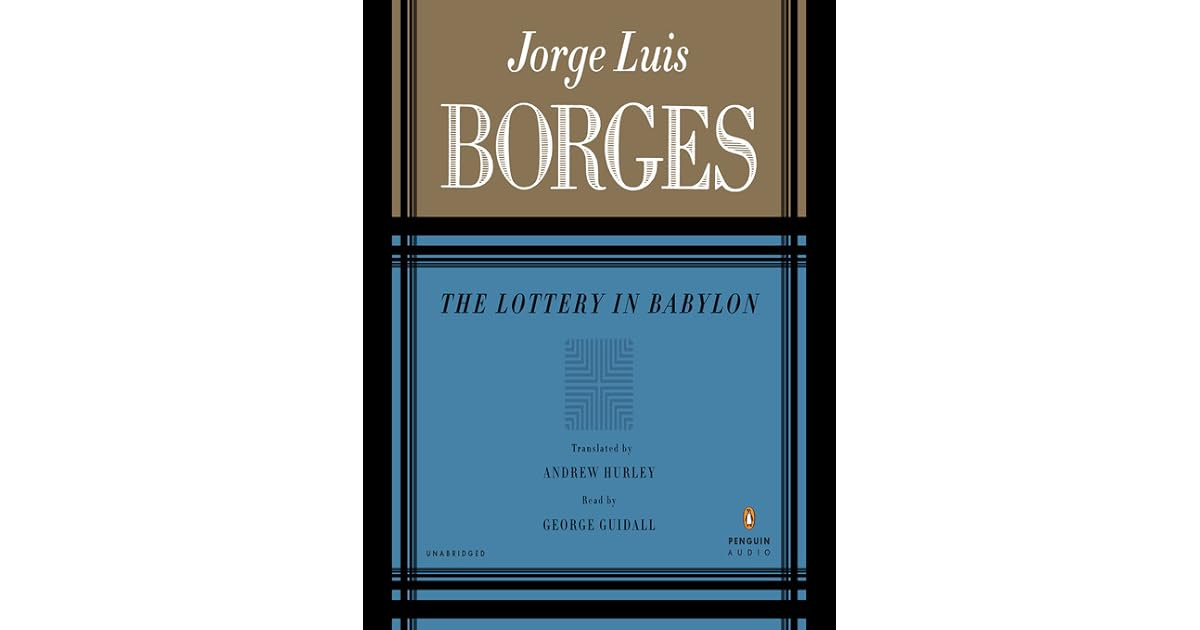An odd joke in the "Lottery in Babylon"
Did Jorge L. Borges like Franz Kafka as much as we think?
Many months ago, as a personal project, I chose to meditate on some of the stories from what had been, and still is, a favourite book from my childhood. That book being the famous compilation of short stories, essays and poems by the great Jorge L. Borges known as “Labyrinths”. Whilst I did not find as much original insights as I wanted, I nonetheless found a few interesting tidbits that I intend to gradually expound upon over the coming months, starting with what I believe to be the simplest and perhaps the most comedic.
In “The lottery in Babylon”, roughly half-way through the short story, the Narrator lists the various places the Babylonian believe they can whisper secrets to “The company” in order to encourage it to favour them in the various complex gambling games they play. Alongside such unremarkable places like a stone lion and an aqueduct the Narrator says that a sacred latrine, named “Qaphqa”, ranks among these alleged rendezvous points. Aside from the oddly blasphemous notion of a holy public-toilet what slowly intrigued me was the name of the latrine, a name I realised was a deliberately eccentric spelling of “Kafka”.
It should be no surprise for Borges-fans that he had an interest in this influential novelist, not only referencing him but devoting a few essays to him as well, but the context in this story is a bit strange. Why associate a novelist he respected with a sacred latrine?
Two answers occur to me, a more sophisticated and likely one, and a simpler but less plausible suggestion.
My first suggestion is that this “joke” is a way of paying homage to the stories of absurd bureaucracy and pessimistic dry-humour that Kafka was famous for. While Kafka himself did not write such a story, you could perhaps see him writing one in which, rather than having an individual suffering at the hand of a bureaucracy, decides to instead turn the tables a bit and have the bureaucracy suffer some kind of indignity at the hand of society instead.
To offer a possible example of how “The lottery in Babylon” could be re-interpreted in this Kafkaesque way, imagine “The Company” as a small, struggling yet conspiratorial and ambitious band of bureaucrats who, after taking over a gambling business which they then proceed to “manage” into a state of higher “productivity/efficiency” are through unexpected consequences of their actions gradually perceived as being more powerful than they truly are by the general public, and thus have to deal with the strangely exaggerated perception of competence and power that they are receiving, despite being in reality quite underpowered. However, not only do other bureaucrats start assuming their identity and thus gain their mysteriously bestowed authority, but the public start deluding themselves into thinking that random occurrences are being caused by them, and that they can hear anything they say at certain places, such as the sacred latrine, regardless of whether said bureaucrats are physically there at all.
The only weakness with this theory is that the significance of the “sacred latrine”, and in particular why Borges decided to name it after Kafka is still left a bit opaque. The only thing I can offer at this time is that I do recall many cultures, such as the Egyptian and the Japanese, did have minor deities and spirits that presided over toilets in various ways. However as far as I am aware none went so far as to create “Sacred latrines”.
The second suggestion is that, at least for a while, Borges did not appreciate Kafka as much as we are led to believe. There is a glimmer of evidence for this in a review Borges wrote for a compilation of Kafka’s stories titled “The Vulture”, in which he admits that when he first read an apologue by Kafka, he found it “insipid”. However, he then makes it clear that this was a very brief situation, and for most of his life had a decent view of Kafka. Therefore, I doubt that this is a likely explanation for Borges’ joke. What other reasons there could be for this “Easter egg” is something I shall leave for others to figure out.




